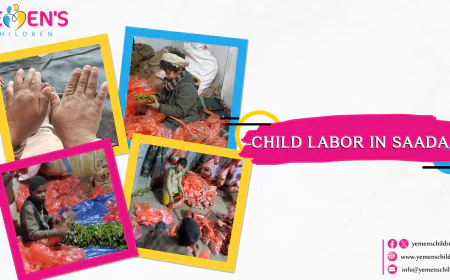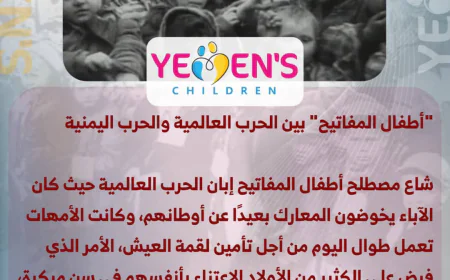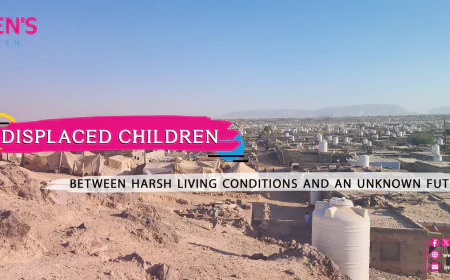Children of War: Breadwinners Amid Displacement and Poverty

Children of War: Breadwinners in the Shadow of Exploration and Poverty
Dawlatullah Abdullah - Yemen Children's Platform
In conflict-affected countries like Yemen, children's rights have been blatantly violated, forcing children to endure even more suffering. As a result of the war, Yemen has suffered from a lack of security and the loss of job opportunities for parents, forcing them to enter the labor market at the age of eight.
Bashar is a 14-year-old boy who was displaced with his family from Al Hudaydah Governorate to Taiz Governorate due to the war. He lives with his parents and eight other family members in a small house. Bashar tells his story, saying, “Before the war, our situation was stable. I used to go to school and come back to play like any other child. But with the war, we were forced to flee. With salaries cut off and my father’s illness, I had to enter the job market. I go to school in the morning, and when I return, I work in a grocery store from noon until 8 pm. I get a salary of 40,000 Yemeni riyals, or about $20 a month, to support my family.”
Bashar's father says, "I had to send him to the labor market to help us make ends meet, even if it was a small amount." Bashar isn't the only one bearing the burdens of his family; many children are facing similar circumstances. Ali Mohammed, a 12-year-old boy, works every day under the scorching sun selling fruit with his father in the city of Al-Turbah in rural Taiz. He spends about ten hours a day working. Salwa, a 13-year-old orphan girl, was displaced with her family from Al Hudaydah Governorate to Taiz Governorate. Salwa works selling stamps and stickers at school to cover her school expenses and support her mother.
Lack of Insufficient Income
Psychologist Siham Mahfouz explains that the main reasons that lead children to enter the labor market include the absence of a breadwinner, family disintegration, and customs and traditions that impose responsibilities on children from an early age. Activist Fadwa Abdul Karim points out that extreme poverty, insufficient income, and displacement are among the primary factors leading to child labor.
This problem is exacerbated by rising poverty and unemployment rates and the ongoing war. Psychologist Siham Mahfouz warns that child labor deprives children of education, their right to play, and exposes them to violence.
International Reports
Child labor has become a phenomenon affecting many countries, especially Yemen, which faces significant challenges due to economic, social, and political imbalances.
Child laborers include children who perform hazardous work, as well as other children who, due to their age or the number of hours they work, are considered to face various risks to their physical, social, psychological, and educational development due to their work.
A child worker, according to the International Labor Organization's terminology, is a child employed in an economic activity, particularly children who perform hazardous work, as well as other children who, due to their age or the number of hours they work, are considered to face various risks to their physical, social, psychological, and educational development due to their work.
The phenomenon of child labor in Yemen has been exacerbated since before the war due to poverty and the poor economic situation. Reports indicate that there are 1.6 million children working in Yemen, out of a total child population estimated at approximately seven million.
Child labor violates the International Labor Organization (ILO) convention ratified by the Republic of Yemen, the Convention on the Rights of the Child, and Yemeni law. Given the lack of support for many child protection programs by government institutions and non-governmental organizations, the phenomenon of child labor will continue to increase. International organizations play a significant role in responding to the humanitarian situation in Yemen, despite the limited funding required, particularly the increasing poverty rates and deteriorating living conditions. The humanitarian aid provided by international organizations is of great importance in reducing child labor and encouraging school enrollment, as most child laborers barely make ends meet, a barrier between them and death.
Proposed Solutions
Psychologist Suham emphasizes the need to stop the war, enact laws that protect children from child labor, and raise community awareness, with a focus on education for this group. Fadwa calls for supporting policies and legislation that protect children's rights, provide education, support families with children, and protect children from violence and exploitation.











